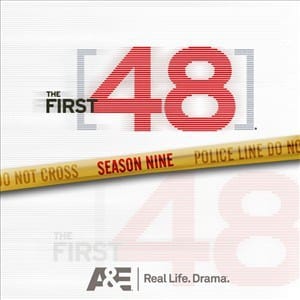Over the weekend, I was quoted in a Miami Herald article about the reality TV show “First 48.” The article highlights some of the ways this “reality show”—which is supposed to document homicide investigations—has actually ended up hurting them.
The problem with programs like “First 48” is that they compromise the integrity of police investigations on many levels. Homicide investigations, for example, have—or at least should have—very stringent protocols when it comes to maintaining the integrity of a crime scene. We’ve all seen the police yellow tape, and we all know what it’s for: to keep unauthorized people from contaminating the crime scene and potentially fouling up an investigation. In the case I am quoted about, the prosecutor actually stipulated to a motion to suppress crime scene evidence. We had still-shots from the show which differed from the official crime scene photographs provided by the prosecutor in discovery. In one picture, an item would be in a certain position, and in another picture, the item would be in another place or not even in the picture. How are you going to explain that to a jury?
There’s also some irony here regarding the recent incident involving Det. Bosch punching the brother of a homicide victim after he crossed the yellow tape trying to get to the body of his brother. You remember the story: the helicopter caught it on video and it was all over the news.. Question: If it’s so important to preserve the integrity of a crime scene that it justifies physical violence, how can you justify letting a crew from a TV show traipse around a crime scene?
When I was cross-examining the lead detective in our case, I was shocked when he admitted that some of the scenes in the show were actually skits that the producers asked them to act out. I couldn’t believe it. These are real peoples’ lives you are dealing with. There are serious consequences to victims’ families as well as defendants. And you’re acting out skits? Are you kidding me? You’re either a homicide detective or a TV star. If you wanted to be an actor you should have gone to Hollywood. You’re a public servant—not a public figure. There’s a difference.
Another thing I was shocked to find out was that the detectives made no effort to preserve any of the raw footage that didn’t make it to the final cut. Here they are wearing microphones that record everything including witness statements and somehow, when the case is prosecuted, it’s like the three monkeys…none of the recordings are provided in discovery, and the prosecutors and detectives claim that they have no control over what the show preserves or doesn’t preserve. The rules of discovery are very clear about what the State has to turn over. Not only is the State required to turn over the recordings, they are required to turn over the names of witnesses who were present when a recorded statement is taken from the Defendant. But did the State give us the names of the people who along with the Detective recorded our client’s interview? No, they didn’t. And what did the Detective have to say when I asked him who these people were? He couldn’t recall; he never bothered writing down anyone’s names. When I was questioning him he conceded that these people from the TV crew are in fact witnesses: they’re witnesses to the crime scene, they’re witnesses to interviews; they’re witnesses to statements my client made. But he doesn’t bother to write any of their names down anywhere in any report. It’s like we have all these rules and protocols, but everything goes out the window if we get a chance to be on TV. It’s crazy.
As a defense attorney, I can’t say that I’m happy that the Miami Police Department hasn’t renewed their contract with the show. It’s almost like T-Ball, where the ball is just sitting there waiting for you to smack it. But as a citizen I’m glad that the contract wasn’t renewed. Now the cops can get back to being cops instead of acting like them.





